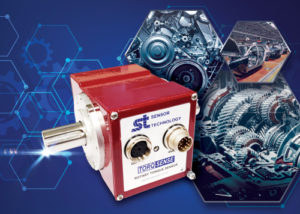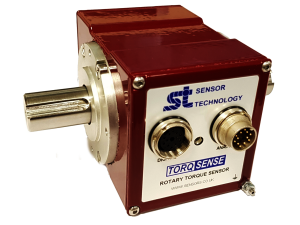 Student engineers are using a newly launched torque sensor for predicting the energy efficiency of a competition-grade electric car. Young technologists from the University of Sheffield alleviated their disappointment at the Covid-cancellation of Shell Eco Challenge Rally by instead developing a computer simulation tool for predicting electric cars’ energy efficiency.
Student engineers are using a newly launched torque sensor for predicting the energy efficiency of a competition-grade electric car. Young technologists from the University of Sheffield alleviated their disappointment at the Covid-cancellation of Shell Eco Challenge Rally by instead developing a computer simulation tool for predicting electric cars’ energy efficiency.
The university has a long association with the Shell Eco Challenge, in which student teams from around Europe compete to see whose car electric will cover the greatest distance on a single charge. So, when Covid shut down the event, rather than abandon their efforts Team Sheffield shifted their focus and set about a related project.
“We have been developing our own computer simulation tools for predicting our electric vehicle’s (EV’s) energy efficiency,” says student Lucy Edwards. “This has let us calculate our vehicle’s competition score for the 40 minute/15km competition run.”
To put the competition into context, Shell Eco EVs achieve upwards of 800 km/kWh, whereas the EVs on the road today may achieve only 15 km/kWh (at the same 25 kph). The competition EV are of course ultra lightweight, very aerodynamic single seaters and the drivers chosen by weight, whereas their road-going counterparts are better adapted for say a family day out. However, the competition demonstrates the potential of electric propulsion and, over the years, has undoubtedly helped development of the technology.
Sheffield’s involvement is extra-curricular but provides a great opportunity for the students to apply what they have learnt in lectures in a practical context.
To build the simulation tool, the students used their knowledge of engineering theory to create a mathematical representation of all the energy losses present in the car. A key piece of data was the motor efficiency curves, which were derives using a dual-purpose powertrain test rig and motor dynamometer. This was developed in-house and based around a TorqSense SGR521, the latest product from from Sensor Technology Ltd, Banbury based specialists focused on developing torque and load measuring technologies.
In fact, Sensor Technology is a regular supporter of Shell Eco Challengers; over the years it has supported several teams from mainland Europe and now one from the UK. “The student teams basically need to run lots of tests on their drive motors and map out the results,” explains Mark Ingham of the company. “As such they are really no different from motor test engineers the world over.
“We are far and away the most active supplier of torque measuring technology and expertise to the Eco Challenge. It is very gratifying to know we give young engineers at the start of their careers a solid grounding in such an important subject, which they will be calling on for decades to come.”
Like their professional counterparts, the young engineers tend to want to develop a test rig that is accurate and easy to use. Usually, they also have space and time constraints, so want a compact design which is quick and easy to set up for each test.
“Our new SGR510/520 range fulfils all these requirements,” says Mark. “It’s only been on the market for a couple of months but is already proving itself to be a favourite in EV test labs around the world – and that is a rapidly growing market at the moment.”
For the Shell Eco Challenge, teams across Europe have to design and build their own electric cars and motor controllers in-house. Typically, powertrains are based on either a brushless DC, or PMSM motor – and complex control algorithms are needed for precision control. This requires custom electronics, typically based on MOSFETs and other carefully chosen low power loss components.
In fact, the rules of the Challenge are such that the controller is included in the motor testing that is done on each teams’ entry. In effect, the capabilities of each piece of hardware are quantified so that the teams can see how they compare with each other.
Lucy sums up the team’s year: “With the tools and hardware we have developed we have posted competitive competition scores. Of course, we are all hoping that soon COVID restrictions allow us to meet our competitors face to face and compete car against car. That will be real world engineering at its best.”





